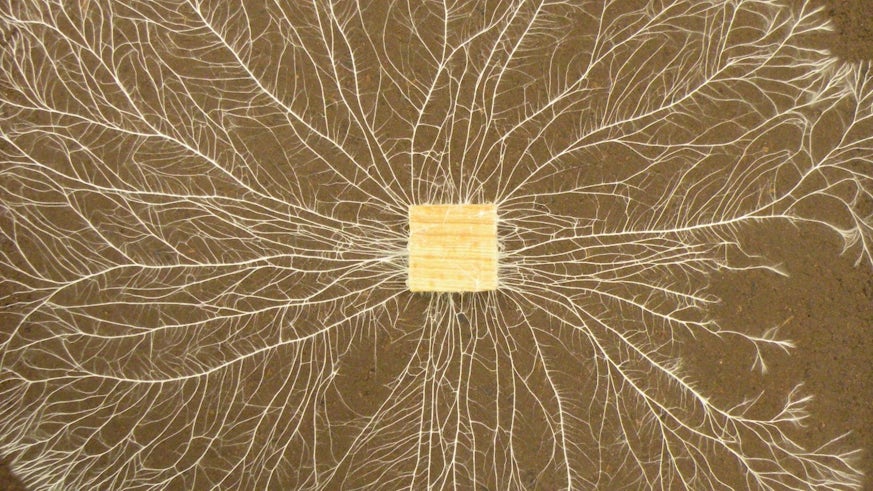New study to establish if fungi could help prevent landslips
10 September 2021

Prof Lynne Boddy is working with the University of Strathclyde to investigate whether fungi’s soil-strengthening properties can mitigate against landslips
The study will use fungi and soil collected from the UK and Italy to understand how the growth of different fungal species can be controlled to improve the engineering performance of natural soils. Fungi strengthen soil and reduce the infiltration of rainwater, both of which are common causes of landslips.
Lead Researcher, Dr El Mountassir, a Senior Lecturer in Strathclyde’s Department of Civil and Environmental Engineering, said: “We know that as fungi grow through soils to forage for nutrients, they build a 3D network of biomass that acts not only to bind soil particles together but also releases products that can modify how water moves through soil.
“Some slopes regularly fail after periods of heavy rainfall when water infiltrates into the soil and reduces its strength. The idea of this study is to use fungi to create a biological geotextile at the soil surface, which could reduce the ability of water to penetrate into the soil, and therefore improve the stability of slopes.
“We will be examining different types of soil, including pyroclastic soil which originated from eruptions of Mount Vesuvius, and looking at how fungal growth changes soil cohesion.”
The research is part of a transition towards a more sustainable, low-carbon civil engineering sector and, as a growth-based system, it would reduce the amount of materials needing to be transported to site.
Prof Boddy is training an engineer in fungal ecology methodology and understanding, as well as acting as the public engagement mentor. She says:
“This is an important project that will develop the use of fungal mycelia in ground engineering. We need a more sustainable approach to ground engineering, i.e. to cut down on use of environmentally damaging chemicals and on the use of energy intensive materials (e.g. cement). As a step towards this, the project will investigate the ability of soil-mycelial (the main body of the fungus) systems to improve slope stability.”
The University of Naples Federico II and engineering company BAM Ritchies are also partners in the study, which has been funded by a £1.26M UKRI (UK Research and Innovation) Future Leaders Fellowship over four years.